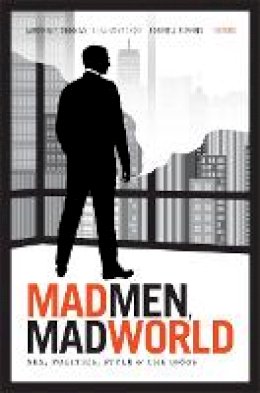
Mad Men, Mad World: Sex, Politics, Style, and the 1960s
Lauren M. E. Goodlad
In the introduction, the editors explore the show's popularity; its controversial representations of race, class, and gender; its powerful influence on aesthetics and style; and its unique use of period historicism and advertising as a way of speaking to our neoliberal moment. Mad Men, Mad World also includes an interview with Phil Abraham, an award-winning Mad Men director and cinematographer. Taken together, the essays demonstrate that understanding Mad Men means engaging the show not only as a reflection of the 1960s but also as a commentary on the present day.
Contributors. Michael Bérubé, Alexander Doty, Lauren M. E. Goodlad, Jim Hansen, Dianne Harris, Lynne Joyrich, Lilya Kaganovsky, Clarence Lang, Caroline Levine, Kent Ono, Dana Polan, Leslie Reagan, Mabel Rosenheck, Robert A. Rushing, Irene Small, Michael Szalay, Jeremy Varon
Product Details
About Lauren M. E. Goodlad
Reviews for Mad Men, Mad World: Sex, Politics, Style, and the 1960s
Diana Clarke
Village Voice
“Throughout the book are intelligent discussions dissecting the central themes addressed in the show, such as masculinity and feminism, identity, and race relations and representations. . . . [It] accomplishes the admirable feat of offering considerable critique and examination from a standpoint of admiration and fandom.”
Publishers Weekly
“Mad Men, Mad World's brilliance is that it analyzes storylines and characters from completely unexpected angles. . . . These are deeply considered pieces that truly spark intellectual discussion. It's a mad world, indeed, but this book helps to bring some order to the chaos.”
Natalie Papailiou
Shelf Awareness for Readers
“There is much else in the book that I found interesting and useful in thinking about Mad Men, and I think it will be stimulating to readers outside the ranks of aca fandom.”
Scott McLemee
Inside Higher Ed
“An interesting conversation.”
Candace Opper
Bitch
“A lot is packed into this volume, and nobody is likely to reach the end feeling shortchanged. . . . This is no giddy fanzine, to be sure, but for folks who take their Mad Men seriously it opens worthwhile paths of inquiry.”
James M. Keller
Santa Fe New Mexican
